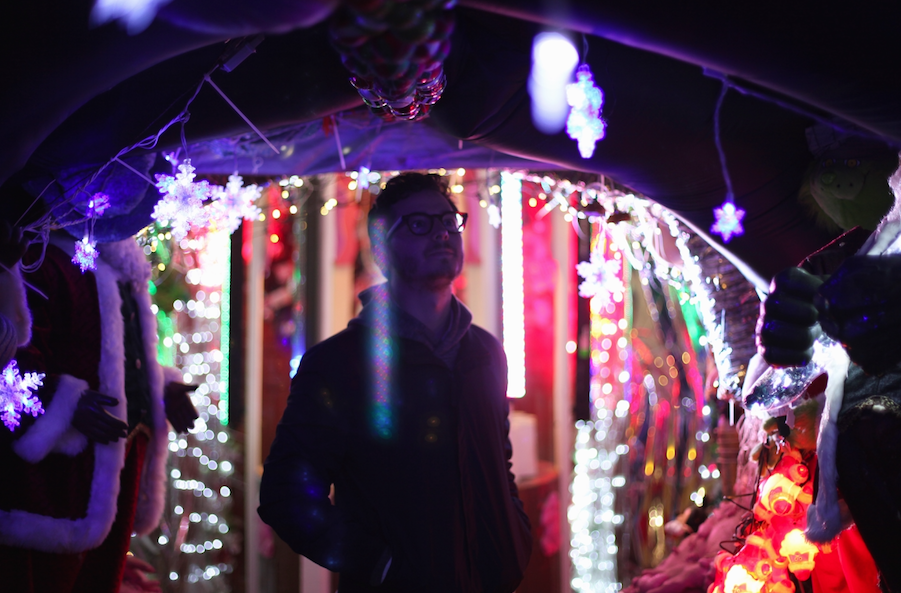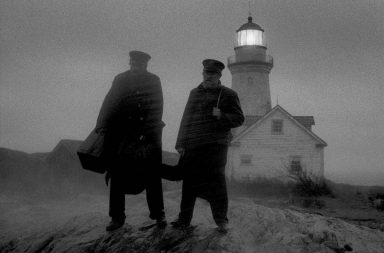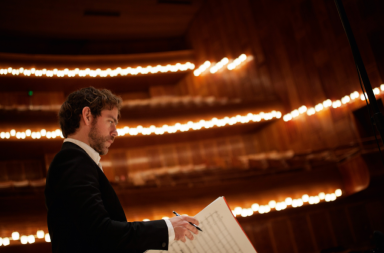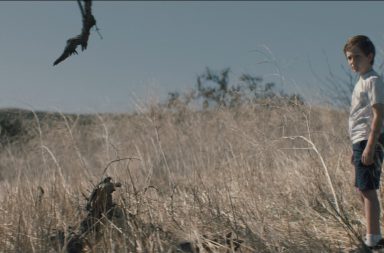A cinematic nostalgia for 80s musical aesthetics has rekindled the marriage between filmmaker and synthesiser, sparking a recent wave of 80s inspired, ominous synth-heavy scores. Think Stranger Things, think Neon Demon, think Drive. This cultural spotlight has also spawned a new generation of electronic composers and amongst them is Ian Hultquist. Familiar to many as the former member of electro-pop band Passion Pit, Ian left the band to pursue a career in film music. Having already compiled an impressive portfolio of scores such as The Diabolical or Animals, Ian recently composed the music for documentary Silicon Cowboys.
Silicon Cowboys by director Jason Cohen recounts the underexposed birth and demise of maverick innovators Compaq, the underdogs of the Silicon Valley computer race. Cohen’s dramatic flair, nostalgic touch and smooth aesthetics fuel an exhilarating narrative; yet the music is the true selling point. Fun, fast and entrancing, the synth-laden score is a relic of the 80s, a breath of fresh air in the wake of dark synth scores and testament to this electronic music maestro. Ian discuses synths, collaborating with wife Sofia and the unoriginality of blockbuster film scores.
Ian Hultquist
Score It: How did you first get involved in Silicon Cowboys?
Ian Hultquist: Producer Ross Dinerstein called me out of the blue mid-January saying that he had a new documentary. Someone must have been hired on it before but it wasn’t working out. He was like “We have a few weeks left, I should have called you from the start. I think you’d be really good on it. It’s about computers in the 80s and its going to be all synth”. I was like “That sounds like my dream!” I had a great experience working with Ross before so I was happy that he reached out again.
What were the first objectives regarding the score laid down in your initial conversations with Jason Cohen?
IH: Jason Cohen is awesome. He has a huge musical background. He said “This is a movie set in the 80s so we want it to feel like that; it’s a movie about computers so we want it to feel mechanical and synthesized and it has to be fun”. They’d temped the film with some cool electro stuff like Daft Punk and College. So straight off the bat I had a good idea about what I needed to do.
Was the score as fun to work on as it is to listen to?
IH: Yeah, it was really fun to write. The music has a jovial spirit for a lot of it. Synth scores are huge right now but many of them are really dark, which is what I write most of the time, so it was cool to write a score that’s just about having fun and celebrating the success that these guys were finding in the story.
Did you have to get reacquainted with the world of 80s synth pop or was it just a case of being let loose on the keys?
IH: There was a bit of research, I took inspiration from Depeche mode and Huey Lewis & The News as they have that really awesome big 80s pop drum sound that I really wanted to capture.
Your wife Sofia who is also a composer, created additional music for the score like the track “Motherboard”. You’ve collaborated together on a few projects; do you guys have a particular way of working together?
IH: The majority of the projects were a co-score between the two of us, when we were working on The First Monday In May documentary. It took us a couple of weeks to figure out how to do it together. But now we’re able to sit in the room together at the keyboard, play at the same time and try to figure stuff out. For Silicon, there was so much music required and so little time that I would send her scenes, and she would just go with it and I would oversee.
Was there anything in the story that you personally wanted to accentuate with the score? Any parts that posed a challenge?
IH: Sometimes I feel like I should have added a western vibe to it. It has that boldness and rumbustiousness that comes with cowboys. I think the most challenging part came at the end, when everything starts falling apart. I’d spent so long building up this party vibe and at the end it really drops down because things aren’t working out. The last few ambient sad tracks were difficult because I was so gung ho about rock. I wasn’t using strings or instruments. It’s so easy to find emotion in a real human playing something but these are just machines —amazing ones of course. So it was tricky to find the emotion in it. It worked out in the end, but it took a couple trials by fire.
Do you have any particular approach to scoring, does anything usually come first? A tempo? A melody?
IH: It’s always different. I spend a couple weeks banging my head against the desk, writing a bunch of material that immediately goes in the trash! Then hopefully I find something, even if it’s just a sound or two, that feels like the story to me. That’s the biggest thing, I like making a score feel like it comes with that film, and that film only. There are so many scores nowadays, mainly big blockbuster films, where you could mix and match the scores for each film and no one would notice. It’s not necessarily the composer’s fault. It’s the model in the system that we are all going into now.
You’re quite the chameleon composer, always switching genres! You’ve done thrillers (The Diabolical), comedies (My Blind Brother) and emotive narratives (Memoria) Are there certain genres that you find more interesting to compose for?
IH: I prefer films that push me to do something different because they’ll make me a better writer. Even something like My Blind Brother was challenging because there was very little music in the film. When it was there I had to work hard to make sure it didn’t detract from the comedy and was just pushing the story along. When I work on a horror film, the biggest thing for me is that I don’t want it to feel cheesy. You have to be over the top to push people but if you go a little too crazy, everyone is just going to start laughing! So I really like the drama middle ground.
People are familiar with you because of Passion Pit and it’s probably a question that you get asked a lot but how did you make the transition from being in a band to film composing?
IH: Actually not many people ask me about it anymore! I started in the band in 2007 when I was still in college, majoring in film scoring. I’d grown up playing in bands so when the opportunity came up to be in a real band, I was like “Yeah let’s go on tour and see the world” and I forgot about scoring for a while. On our first break in 2011, I had a few months back home and I realised that I missed scoring. You have this rush of energy on tour; the second you go back home, it’s like you’re sitting on your couch and no one could care less. I wanted to keep doing things. At the end of touring in 2013/ 2014, I didn’t know if I wanted to keep touring. I’d been in the band for 7 years and scoring started calling to me. It was a hard decision but so far it’s been great and I’m really glad I did it.
Ian Hultquist (Photo Credit: Kristy Benjamin)
Have you got anything in the pipeline? Are you expecting a busy 2017?
IH: I hope so! it’s funny, I started this year with nothing on my plate then Silicon Cowboys came about and it’s been non-stop since. I hope next year will follow suit. It’s nice to have things lined up so you can just keep going. I’ve just finished Clinical, a film for Netflix. I’m starting two new documentaries: one is for HBO and the other is for National Geographic and I might be doing another after that.
Any words of wisdom to aspiring composers before we part?
IH: The biggest thing is finding someone you can connect with within the creative field and form friendships. That’s what helped me land on my first features. Most of the time —especially now that I’ve worked on more films where I don’t really know anyone— the composer is very much removed from the rest of the film. It’s just you on your own and it can be a little isolating sometimes. The more connections you can have, the better, because it creates stronger material. Collaborating strengthens the story, the music and the overall film. There are those films where everyone is playing their roles and there’s isn’t much interplay between them and it feels cold in the end.
A massive thank you to Ian for his time and to Maike at White Near PR for helping us arrange the interview!
Interview prepared, conducted, transcribed by Emily Perry and edited by Marine Wong Kwok Chuen.




